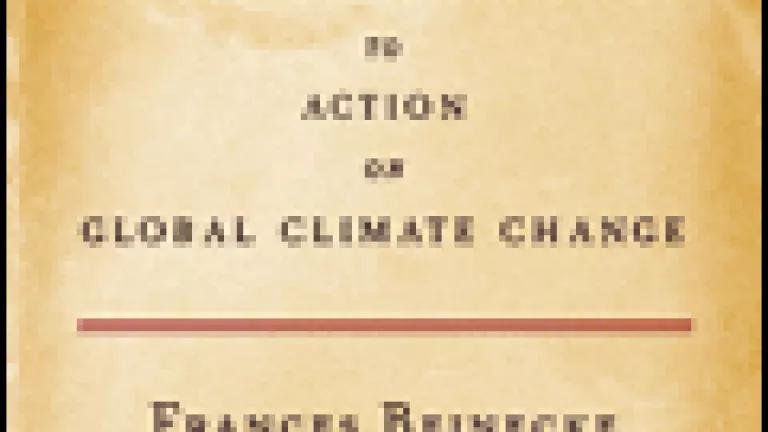This Is Not a Political Screed, It Is Common Sense for Our Energy Future

There are a lot of people in America right now who hear claims on both sides of the climate change debate and aren't sure what to believe. These are some of the people I hope to reach with my new book, Clean Energy Common Sense.
My book is a call to action, one citizen's honest appeal. It is not a political treatise. It is not a partisan screed. Maybe that's because my politics on this are simple. I believe Democrats and Republicans alike have a real chance here to lead, to look to the future and show us the way to a better and brighter tomorrow.
As I travel this country and listen and learn, I hear the reasons people give for not taking action on climate change. Most come down to one of three things.
Some people regard climate change as a problem, but not a priority. Others wonder what taking action might mean for our economy or our place in the world. Still others worry our politicians might somehow get it wrong.
These are valid expressions of important concerns. They deserve a considered response. That is why I wrote this little book.
Climate change affects each and every one of us, each and every day. Taking action against it will strengthen our economy and make our country more secure. And the men and women we've elected to govern us have what it takes to lead.
I believe those things. That's why I support the clean energy legislation that's before the Senate right now.
Clean energy legislation can curb global climate change in a way that helps us to generate jobs, reduce our reliance on foreign oil and create a healthier planet for ourselves and our children. It deserves, and it needs, our support.
Here are a few reasons why. In November 2007, Georgia Gov. Sonny Perdue led a Capitol vigil to pray for rain, after the state's worst drought in a century baked crops to dust and turned lake beds to chalk. Two years later, he declared a state of emergency in seventeen counties, after record flooding took at least nine lives. President Obama called to lend his support. But before he picked up the phone, Obama had to break away from United Nations talks. The subject? Climate change.
"The threat from climate change is serious, it is urgent and it is growing," Obama told his U.N. counterparts that day in September. We can curb that threat, he said, in ways that strengthen our economy and make our country more secure, and we must act now. "The time we have to reverse this tide is running out."
There's a connection between what happens to our planet and what happens in our lives. Arctic ice affects currents and weather. Widening deserts spread thirst and disease. Crops fail, people go hungry. Climate shifts, and we see epic escalations in the severity and frequency of the kinds of hurricanes that deluge our cities, the wildfires that ravage our land, and successive drought and flooding that can whipsaw states and entire regions in a spiraling vortex of unpredictable change.
It doesn't have to be this way. We can turn back climate change. We must summon the will to do so, before we run out of time.
I know in some quarters this issue elicits division, and rancor and noise. I can't for the life of me understand why. If ever there were a threat to unite us, an opportunity we all might rally around, surely we can muster the collective will to prevail against a pall hanging over us all.
Global climate change is the single greatest environmental challenge of our generation. It is, though, far more than that. It is a humanitarian challenge. It is an economic challenge. It is a national security challenge. And it is a moral challenge, the great moral challenge of our time. We must rise to meet it, we must turn it around, or we will fail our forebears and our children.
